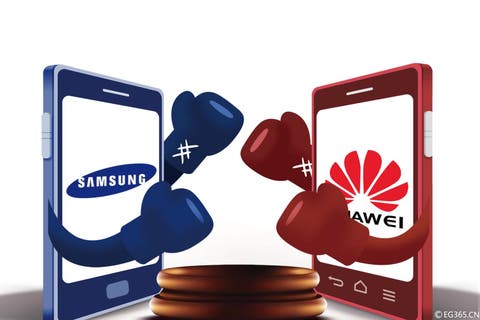According to BusinessKorea, the development of 5G technology is beginning to give some South Korean companies relevance as the top players in 5G tech battles for their equipment. Samsung, Huawei, Ericsson, and Nokia all tried to bid for orders for 5G network equipment from the three major carriers in South Korea. However, industry experts predict that this competition will eventually become a two-way hegemony between Samsung Electronics and Huawei. The Chinese telecom company is stepping up its efforts to expand its operations in South Korea, striving for orders from South Korean customers for 5G telecom network equipment, and preparing to launch a new smartphone.
Industry sources said that as the 5G spectrum auction is about to be held on June 15th, the competition between domestic and foreign manufacturers for 5G network equipment orders is becoming increasingly fierce. When the three major operators in South Korea allocate spectrum, it is expected that they will start ordering related telecommunications equipment immediately. In this regard, the most noteworthy point is whether Huawei can seize part of the market share from Samsung Electronics, which accounts for nearly half of the Korean telecommunications network equipment market.
In 2013, Huawei provided telecommunications equipment for LG U+ for the first time to build LTE services. Due to security controversy at that time, LG U+ announced that it will not use Huawei’s equipment in the US military’s presence in South Korea. However, the current bid for 5G network equipment might favour Huawei because it is considered as a technology leader in 3.5 GHz spectrum equipment. The spectrum is called “golden spectrum” by the industry and can be used to build a nationwide network. In addition, Huawei’s equipment is also 30% lower than its competitors. A telecommunications industry source said
“In the future, we will have to spend tens of trillions of won to build a nationwide 5G network. Therefore, the price competitiveness of telecommunications equipment cannot be ignored,”
Huawei is also preparing to revive its smartphone business, which has plummeted in the Korean market. “We are actively considering launching new smartphones in Korea,” said one Huawei executive. “We haven’t decided yet, but it is possible to launch medium- and low-end models in Korea first.” Huawei’s influence is constantly expanding. Market research firm TrendForce has already predicted that Huawei will beat Apple in the second quarter of this year and become the second-best player in the global smartphone market.
Follow Gizchina.com on Google News for news and updates in the technology sector.
